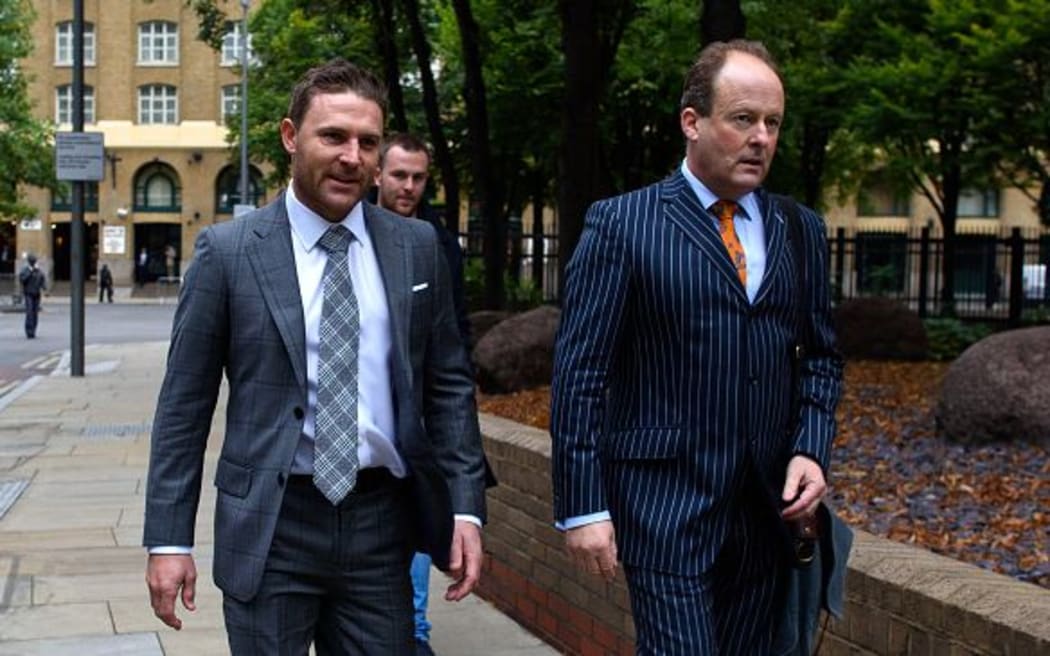A former head of the International Cricket Council's anti-corruption unit has questioned comments by former New Zealand captain Brendon McCullum, who lablled the unit's approach as casual.
Delivering the MCC Spirit of Cricket lecture at Lord's on Tuesday McCullum, who gave match-fixing evidence against former team-mate Chris Cairns said he felt the unit's evidence-gathering had to be "much more thorough, more professional".
McCullum said when he first reported Cairns' approach to John Rhodes of the unit he got the impression his statement would be put in the bottom draw and never see the light of day again.
But Ravi Sawani the former general manager of the Anti-Corruption and Security Unit has told ESPN Cricinfo the ACSU could not have used McCullum's statement against Cairns since the ICL did not fall under the ICC umbrella.

Brendon McCullum and his lawyer Garth Galloway arriving at court in London in 2015. Photo: Getty
"We could not have used any part of what McCullum had told us against Chris Cairns in any manner because Chris Cairns was not under the ICC jurisdiction at that moment," Sawani said.
"He [Cairns] was accused of doing something when he was part of the ICL (Indian Cricket League) operations. As per the ACSU code Cairns had not done anything in any ICC-controlled match so there was no necessity for us to prosecute Chris Cairns," he said.
"Also, because we had taken a decision not to prosecute McCullum for the delay in reporting an approach, there was no requirement for recording McCullum's statement in a detailed manner."
After speaking to Rhodes, McCullum made detailed statements to the ACSU and the Metropolitan Police in London in 2014.
The Metropolitan Police, McCullum said, was "streets ahead in terms of professionalism" compared to the ACSU.
Sawani, however, disagreed with McCullum.
"The Met Police recorded his statement to criminally prosecute Chris Cairns and his lawyer [who was also acquitted] for certain offences as per the English law and obviously they went into great details as to what happened and exactly what was the cause of the statement that he had made and what happened thereafter," Sawani told ESPN Cricinfo.
"It had to be evidence recorded as per the procedure prescribed in English criminal law and then used during criminal proceedings."
According to Sawani, the ACSU took a well-deliberated decision not to punish McCullum for his failure to report the approach three years after Cairns allegedly made it.
"I took that decision that no action need be taken against Brendon McCullum," Sawani said.
"McCullum was stating something three years late about an incident. No action was taken even though technically it was an offence. The player himself had come forward to report an approach about which we were not aware and it would have been stupid on our part to punish him for that."
Sawani also denied that anyone within the ACSU was responsible for McCullum's statement being leaked to the media saying there were others present in the room each time McCullum recorded a statement.
"McCullum himself admitted this," Sarwani said, "when he said 'I had told other people about Cairns' approaches - one of them was my captain and friend, Dan Vettori'. There were many possibilities."

